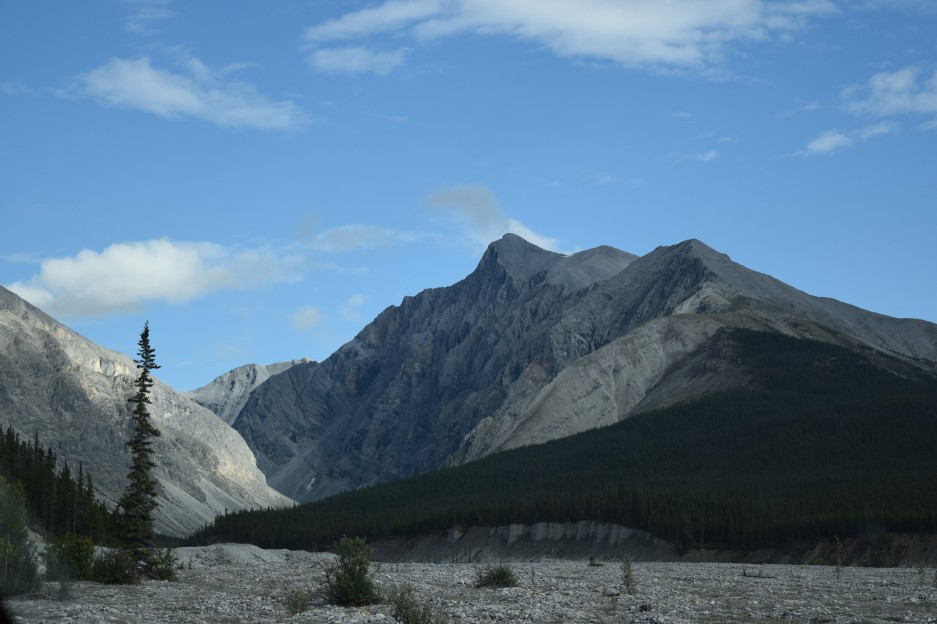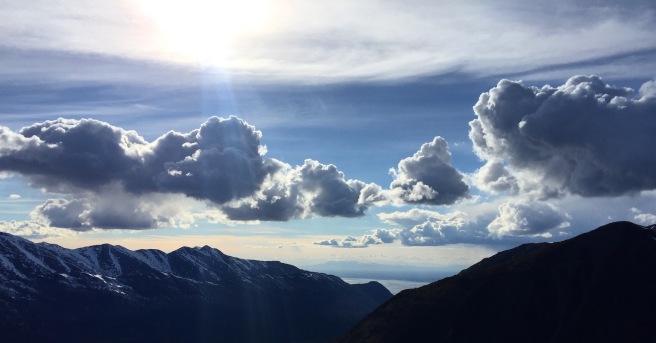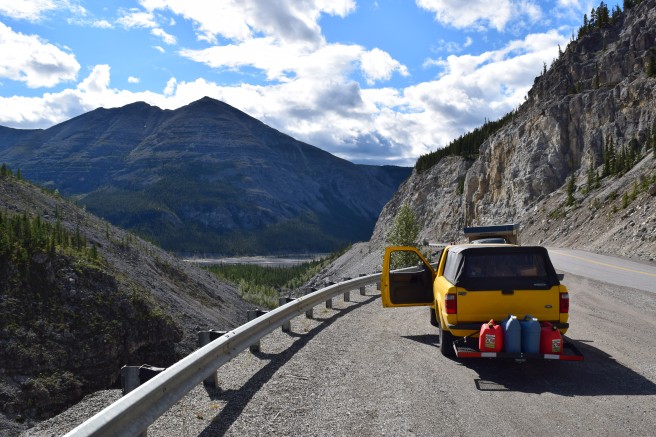
On a late spring day some weeks ago I was driving back north to my home after spending a week house- and dog-sitting for a friend in Anchorage. I was giddy. I didn’t quite realize how much I had missed the cabin until the stores and apartment complexes that line the highway gave way to trees and mountains. It was a surprising happiness and a simple one.
I decided to stop halfway home to refill my gas tank. It was early on a Saturday, around 7 or 8 o’clock, and both the gas station and the adjacent parking lot for the grocery store were almost completely empty. When I pulled up to one of the pumps and got out, I noticed a man in the distance walking across the parking lot. I thought nothing of it and began fueling. The man neared. As I finished fueling up my truck and was about to get in and go home I heard a voice calling to me: “Brother! How are you? Where are you headed?” The man I had seen from across the lot had made his way over to me. He was smoking a Black and Mild and wore an Army PT jacket and well-worn jeans.
“North.” I replied, suspecting where he was going with his questions, but keeping my own plans vague. He explained that he had received and email. That he needed to get to Fairbanks. That he had been offered a job but had no way to get there.
“I can drive you as far north as Palmer.” I offered. He accepted enthusiastically, took a few final drags from his cigar, extinguished it, and got into my truck as I cleared out the passenger seat. He was African. Perhaps 30 years old, he had short dreaded hair and weary eyes. I suspected he had come to the US from Africa relatively recently and (admittedly, always looking for a chance to practice my Kiswahili) I asked him where he was from.
“Ohio.”
“I’m from Virginia.” I offered, attempting to find a common ground for conversation.
“I think I’ve been there.”
The conversation was slow and awkward at first. We talked about how we had gotten to Alaska. I had driven. He flew. I work in a coffeeshop. He had bounced from job to job working his way up the Kenai Peninsula. He’d stayed in most of the jails along the way. He had gotten a ride at one point from a trucker who had grabbed his crotch. I promised not to grope him in a failed attempt at humor that I had hoped would put a deeply tired man at ease.
The conversation wound awkwardly around and eventually we returned to the topic of origins and my further questions about Ohio led him to tell me that he was from Somalia. That he had fled his country and spent a number of years in a refugee camp in Kenya.
“You hear my accent and you think this man must not be from America.” He said dejectedly. “You can’t buy anything for a dollar. A man gave me a dollar and all I could buy was that Black and Mild. I’m not even in a refugee camp but here I am hungry.” I had tiny bags of almonds in my glove compartment left over from a road trip and I offered them to him.
“How old are you?” He asked.
“Twenty-two.”
“Is this your truck?”
“Yes.”
“You’ve been here less than a year and you have a truck? I’ve been here two years and I still don’t have a truck.”
I tried to explain that it had belonged to my parents and that I was still paying them for it, but he continued his line of questioning.
“Do you have a girlfriend?”
“No.”
“Do you have a wife?”
“No.”
“Do you have any kids?”
“No.”
“Man you gotta get your shit together.”
He talked about his plans to save up money and buy a sleeping bag and then a car and then land. He wanted to raise goats. He said Alaska was beautiful but cold. I dropped him off in Palmer with the few remaining bags of almonds and the $83 of tips that had survived in my wallet since Monday. And then I drove home.
To say that I was heavy-hearted on my way home would be both an understatement and an easy way out in the face of a deeply complex and heart-wrenching issue; a quick and easy way to fit such a vivid and unsettling experience into a familiar emotional framework. I have tried to resist the urge to find explanation in terms of “me.” Instead, in reflecting on that drive, I have succumb to another of my weaknesses: to think of things in broad theoretical terms. As if the problems of the man I drove to Palmer are a case study for all of humanities problems. As if these problems are to be solved by logic and not action.
Still —when confronted with the great and troubling irony that human action (and not theoretical engineering or sociology or economics) created both the concept and physical manifestations of ‘home’ and of ‘homelessness’— I seek the comfort of the writers I revere in order to formulate some hope of better understanding the problems of modernity and their possible solutions.
Jack Turner, in his book The Abstract Wild, writes:
The condors need to get home, too. So do the orcas. That they no longer have a home is not their problem. It is our problem; we have done it. The solution is to give them their home. Why is this so difficult to conceive or act upon? Part of the answer is this: we no longer have a home except in a brute commercial sense: home is where the bills come. To seriously help homeless humans and animals will require a sense of home that is not commercial. The Eskimo, the Aranda, the Sioux — all belonged to a place. Where is our habitat? Where do I belong?
‘All sites of enforced marginalization-ghettos, shantytowns, prisons, madhouses, concentration camps-have something in common with zoos.’ If we add Indian reservations, aquariums, and botanical gardens to this list, a pattern emerges: removed from their home, living things become marginal, and what becomes marginal is diminished or destroyed. Of bedrock importance is the complexity of animals, plants, and place that creates a unique community. This is as true for Homo sapiens as for all other species.”
Wade Davis takes a more focused anthropological look at the issues when he writes in The Wayfinders:
“In reality, development for the vast majority of the peoples of the world has been a process in which the individual is torn from his past, propelled into an uncertain future, only to secure a place on the bottom rung of an economic ladder that goes nowhere. […] As cultures wither away, individuals remain, often shadows of their former selves, caught in time, unable to return to the past, yet denied any real possibility of securing a place in a world whose values they seek to emulate and whose wealth they long to acquire.”
When faced with these bleak accounts that try to explain the problems of the world, I find comfort and hope in the words of the Lakota Chief Luther Standing Bear who said:
“…the old Lakota was wise. He knew that a man’s heart, away from nature, becomes hard; he knew that lack of respect for growing, living things soon led to lack of respect for humans, too. So he kept his children close to nature’s softening influence.”




